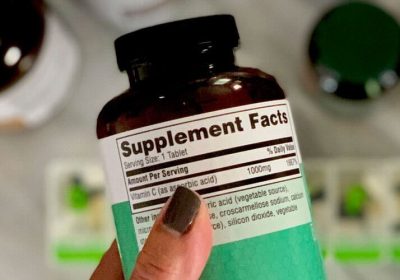The FDA is being taken to court for its ban on NMN (nicotinamide mononucleotide), an NAD precursor supplement that has profound anti-aging benefits. Action Alert!
Listen to the audio version of this article:
THE TOPLINE
- On the basis of a Citizen Petition submitted by ANH-USA and the Natural Products Association (NPA), NPA is suing the FDA over its decision to ban NMN, a supplement that promotes longevity by boosting NAD+ levels.
- The FDA’s system allows drug companies to convert natural ingredients into drugs and monopolize them, blocking supplement companies from selling those ingredients.
- NMN, found naturally in foods, is widely recognized for its anti-aging benefits. The lawsuit challenges the FDA’s position on NMN, arguing that consumers should have affordable access to NMN supplements.
Our allies at the Natural Products Association (NPA) have filed a lawsuit against the FDA for the agency’s declaration that nicotinamide mononucleotide (NMN) is not a legal dietary supplement. This lawsuit builds off the Citizen Petition jointly submitted by ANH-USA and NPA.
The petition and the lawsuit lay out many of the arguments that we’ve covered in previous articles relating to NMN. NMN is a NAD+ boosting supplement that helps promote longevity. The issue is that in 2022, the FDA said that NMN can no longer be a supplement. Why?
It all has to do with the backchannel at the FDA that allows drug companies to take natural ingredients and turn them into drugs while banning the supplement versions. This is how the backchannel works: for supplements that are considered “new” under the law—that is, they weren’t sold “in or as a supplement” before 1994—companies must submit a notification to the FDA with studies to prove that it is safe before that ingredient can be marketed. But if a drug company files an investigational new drug application (IND) and studies that ingredient before the FDA receives an NDI notification on it from a supplement company, it can no longer be sold as a supplement.
This is a massive problem because it creates a stacked deck in favor of Big Pharma monopolies. IND applications are confidential. A drug company can file an IND on an ingredient on the basis of a single basic trial that, by itself, is insufficient for FDA approval, and sit on it for years. Meanwhile, an innovative supplement company could develop that nutrient into a great product, do the studies to comply with the FDA’s ridiculous notification process, and then create a market for that product—and then the drug company can swoop in with their IND, kick the supplements out of the market, and create a monopoly.

There are also important questions as to whether NMN counts as a “new” supplement at all—and if NMN is not a new supplement, then there can be no Big Pharma monopoly on the ingredient. If an ingredient has “been present in the food supply as an article used for food in a form in which the food has not been chemically altered,” no “new” supplement notification is required.
NMN is naturally present in foods such as cow milk, mushrooms, tomatoes, edamame, avocados, broccoli, cabbage, cucumbers, beef, shrimp, and many other foods. The chemically altered version of NMN is that which is being developed at MetroBiotech, the drug company trying to win a monopoly. In this new, post-Chevron era, it will be interesting to see how a judge settles these issues, rather than just relying on the FDA’s interpretation of the law.
Let’s keep in mind what’s at stake. NMN, or nicotinamide mononucleotide, is not a fringe ingredient being used by eccentric billionaires. It is becoming widely recognized for its potential to reverse aging, likely because NMN is one of the most effective precursors to NAD+ , which is critical to longevity, healthy neurological function and energy production in the body. NMN is on the cutting edge of anti-aging, and we’re fighting so we can all have access to this compound at reasonable prices. MetroBiotech and the FDA are working to make sure that doesn’t happen.
The FDA, and particularly Congress, need to decide who they care more about: consumer access to affordable NMN, but also a host of other natural compounds in supplement form, or the profits of drug companies. Send a message below to make sure they listen to YOUR voice on this issue, not just MetroBiotech’s.
Action Alert! Write to Congress and urge them to protect access to affordable NMN supplements. Please send your message immediately.




IT IS NOT ETHICAL, NOR SHOULD IT BE LEGAL, FOR THE FDA TO BAN A NATURAL SUBSTANCE FROM USE BY OUR CITIZENS BECAUSE A DRUG COMPANY WANTS TO USE IT AS A PRESCRIPTION DRUG AND MAKE A BIG PROFIT FROM IT. THE FDA SHOULD BE WORKING FOR THE CITIZENS AND NOT INDUSTRY INTEREST.
This has been very helpful supplement and should not be taken over by a drug company that hadn’t been aware of it previously. It isn’t a new supplement and is already available naturally occurring in foods. If the FDA is really doing the job they say they are, to protect consumers they will not allow a drug company to once again monopolize the production and call it a drug. Who is getting a kickback here? Perhaps a more prudent move would be to disallow the drug company from rebranding it as a drug to start with.
As your constituent, I’m calling on you to sponsor a bill that would prevent NMN from being banned as a supplement.
Stop messing with our health!